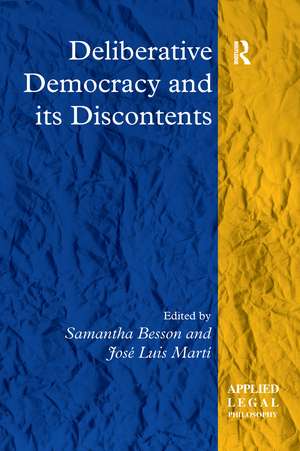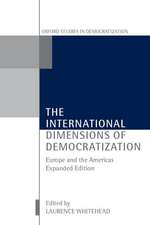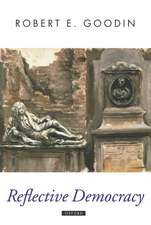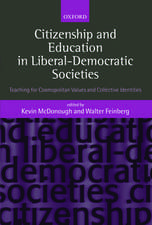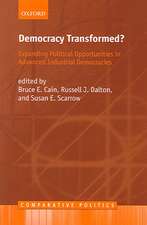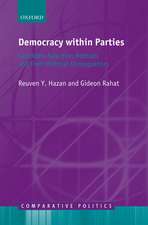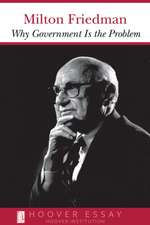Deliberative Democracy and its Discontents: Applied Legal Philosophy
Editat de Jose Luis Marti, Samantha Bessonen Limba Engleză Paperback – 11 noi 2016
| Toate formatele și edițiile | Preț | Express |
|---|---|---|
| Paperback (1) | 338.33 lei 6-8 săpt. | |
| Taylor & Francis – 11 noi 2016 | 338.33 lei 6-8 săpt. | |
| Hardback (1) | 824.53 lei 6-8 săpt. | |
| Taylor & Francis – 17 oct 2006 | 824.53 lei 6-8 săpt. |
Din seria Applied Legal Philosophy
- 30%
 Preț: 850.99 lei
Preț: 850.99 lei - 18%
 Preț: 1001.07 lei
Preț: 1001.07 lei - 27%
 Preț: 997.69 lei
Preț: 997.69 lei - 18%
 Preț: 1059.45 lei
Preț: 1059.45 lei - 24%
 Preț: 325.01 lei
Preț: 325.01 lei - 30%
 Preț: 777.27 lei
Preț: 777.27 lei -
 Preț: 469.34 lei
Preț: 469.34 lei - 26%
 Preț: 764.20 lei
Preț: 764.20 lei -
 Preț: 489.26 lei
Preț: 489.26 lei - 25%
 Preț: 830.92 lei
Preț: 830.92 lei - 28%
 Preț: 824.70 lei
Preț: 824.70 lei -
 Preț: 469.34 lei
Preț: 469.34 lei -
 Preț: 469.34 lei
Preț: 469.34 lei - 18%
 Preț: 1058.38 lei
Preț: 1058.38 lei - 30%
 Preț: 770.33 lei
Preț: 770.33 lei - 24%
 Preț: 792.93 lei
Preț: 792.93 lei - 28%
 Preț: 823.08 lei
Preț: 823.08 lei -
 Preț: 469.34 lei
Preț: 469.34 lei - 18%
 Preț: 700.75 lei
Preț: 700.75 lei - 18%
 Preț: 1054.71 lei
Preț: 1054.71 lei - 28%
 Preț: 824.53 lei
Preț: 824.53 lei - 18%
 Preț: 1054.71 lei
Preț: 1054.71 lei - 18%
 Preț: 703.93 lei
Preț: 703.93 lei - 31%
 Preț: 764.20 lei
Preț: 764.20 lei -
 Preț: 389.66 lei
Preț: 389.66 lei -
 Preț: 489.26 lei
Preț: 489.26 lei - 18%
 Preț: 1110.92 lei
Preț: 1110.92 lei - 18%
 Preț: 1062.26 lei
Preț: 1062.26 lei - 18%
 Preț: 1003.43 lei
Preț: 1003.43 lei - 18%
 Preț: 1000.27 lei
Preț: 1000.27 lei -
 Preț: 436.14 lei
Preț: 436.14 lei - 15%
 Preț: 443.36 lei
Preț: 443.36 lei - 18%
 Preț: 1054.71 lei
Preț: 1054.71 lei -
 Preț: 481.58 lei
Preț: 481.58 lei - 18%
 Preț: 1059.45 lei
Preț: 1059.45 lei - 15%
 Preț: 698.17 lei
Preț: 698.17 lei - 18%
 Preț: 1163.63 lei
Preț: 1163.63 lei - 18%
 Preț: 1009.21 lei
Preț: 1009.21 lei - 28%
 Preț: 821.13 lei
Preț: 821.13 lei - 18%
 Preț: 1054.71 lei
Preț: 1054.71 lei - 16%
 Preț: 249.77 lei
Preț: 249.77 lei
Preț: 338.33 lei
Preț vechi: 394.32 lei
-14% Nou
Puncte Express: 507
Preț estimativ în valută:
64.74€ • 69.23$ • 53.98£
64.74€ • 69.23$ • 53.98£
Carte tipărită la comandă
Livrare economică 17 aprilie-01 mai
Preluare comenzi: 021 569.72.76
Specificații
ISBN-13: 9781138257146
ISBN-10: 1138257141
Pagini: 296
Dimensiuni: 156 x 234 x 2 mm
Greutate: 0.45 kg
Ediția:1
Editura: Taylor & Francis
Colecția Routledge
Seria Applied Legal Philosophy
Locul publicării:Oxford, United Kingdom
ISBN-10: 1138257141
Pagini: 296
Dimensiuni: 156 x 234 x 2 mm
Greutate: 0.45 kg
Ediția:1
Editura: Taylor & Francis
Colecția Routledge
Seria Applied Legal Philosophy
Locul publicării:Oxford, United Kingdom
Cuprins
Contents: Introduction, Samantha Besson and José Luis MartÃ. Part I Why Deliberate: Is the ideal of a deliberative democracy coherent?, Cristina Lafont; The epistemic conception of deliberative democracy defended - reasons, rightness and equal political autonomy, José Luis MartÃ; The value added by theories of deliberative democracy: where (not) to look, Andreas Follesdal. Part II How to Deliberate: Democracy and the real speech situation, David Estlund; Depoliticizing democracy, Philip Pettit; Conflict and self-interest in deliberation, Jane Mansbridge; Framing public deliberation and democratic legitimacy in the European Union, Deirdre Curtin. Part III Where to Deliberate: The people in deliberative democracy, Francis Cheneval; Deliberative demoi-cracy in the European Union - towards the deterritorialization of democracy, Samantha Besson; Institutional reform and democratic legitimacy: deliberative democracy and transnational constitutionalism, James Bohman; Should deliberative democrats defend the judicial enforcement of social rights?, Roberto Gargarella. Index.
Notă biografică
Samantha Besson is Professor of Public International Law and European Law at the University of Fribourg, Switzerland. She is currently leading an interdisciplinary research project on the legal and political theory of European integration supported by the Swiss National Science Foundation. Previously, she held a research position at Oxford University and a senior lectureship at the University of Geneva European Institute. Her publications and research interests lie in constitutional and democratic theory with a special emphasis on global justice and post-national institutional design. José Luis Martà is PhD in Political Theory and Associate Professor of Law, Pompeu Fabra University, Barcelona, Spain. He is mainly interested in theories of democracy, republicanism and theories of justice. He has published extensively on deliberative democracy and republicanism. A sample of his work may be found in L. Wintgens (ed.), ’The Theory and Practice of Legislation’, published by Ashgate (2005).
Recenzii
'This scholarly, rigorous and exhaustive treatment of deliberative democracy is likely to be a central reference point for many years to come. Its refusal to endorse truisms or revert to ideological markers mean that neither opponents nor supporters of deliberative democracy will be able to ignore its arguments.' Damian Chalmers, London School of Economics and Political Science, UK 'It is clear: the questions that this volume addresses on the theory of deliberative democracy are equally serious, pertinent and fruitful. The principle merit of its contributors is that they take seriously the deliberative ideal without this false naivety that can sometimes be found amongst other advocates. Refusing to limit themselves to a purely conceptual approach, [the contributors] aim rather to address the fundamental problems unearthed by the deliberative ideal in the light of a practical reflection on its performance conditions. Above and beyond the conclusions they reach, it is the originality and fruitfulness of this process that must be praised.' Revue Philosophique de Louvain
Descriere
Drawing on political, legal, national, post-national, as well as American and European perspectives, this collection of essays offers a diverse and balanced discussion of the current arguments concerning deliberative democracy. The essays consider the three basic questions of why, how and where to deliberate democratically.
